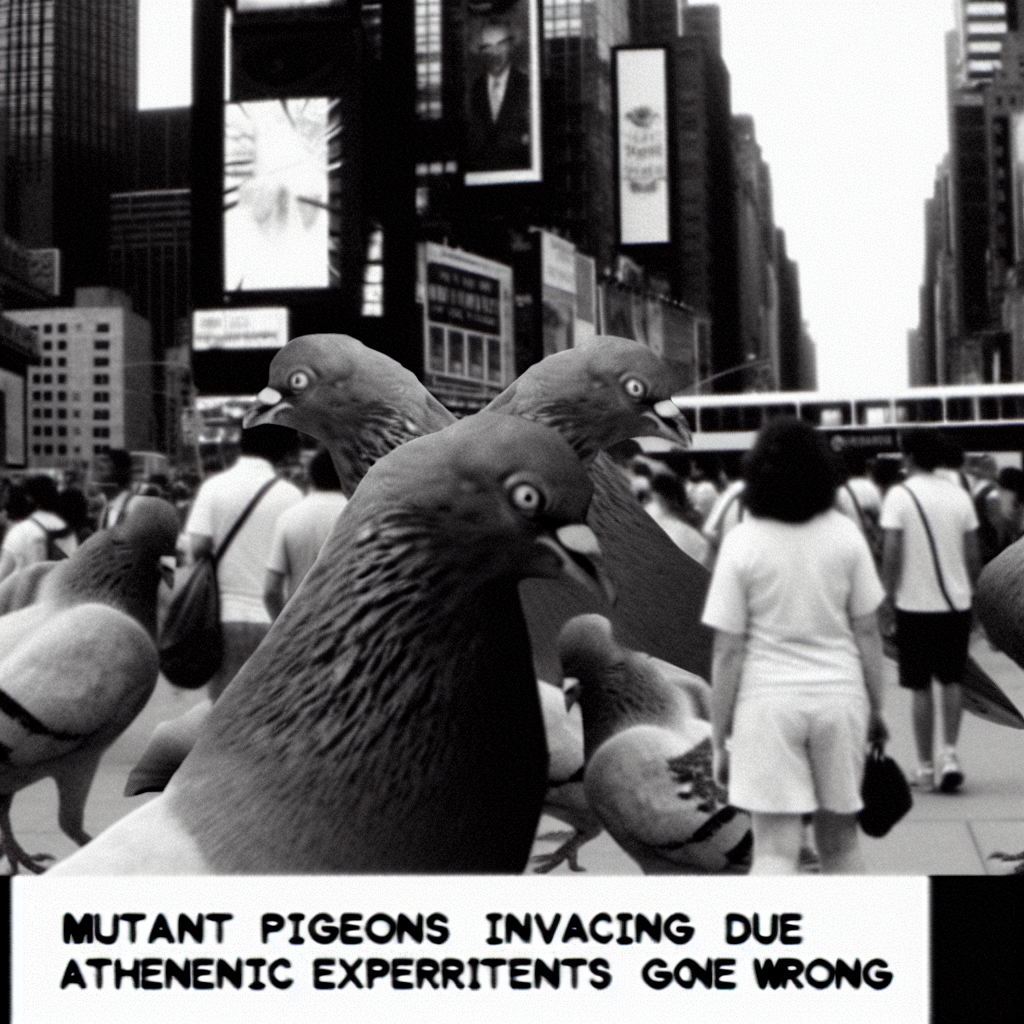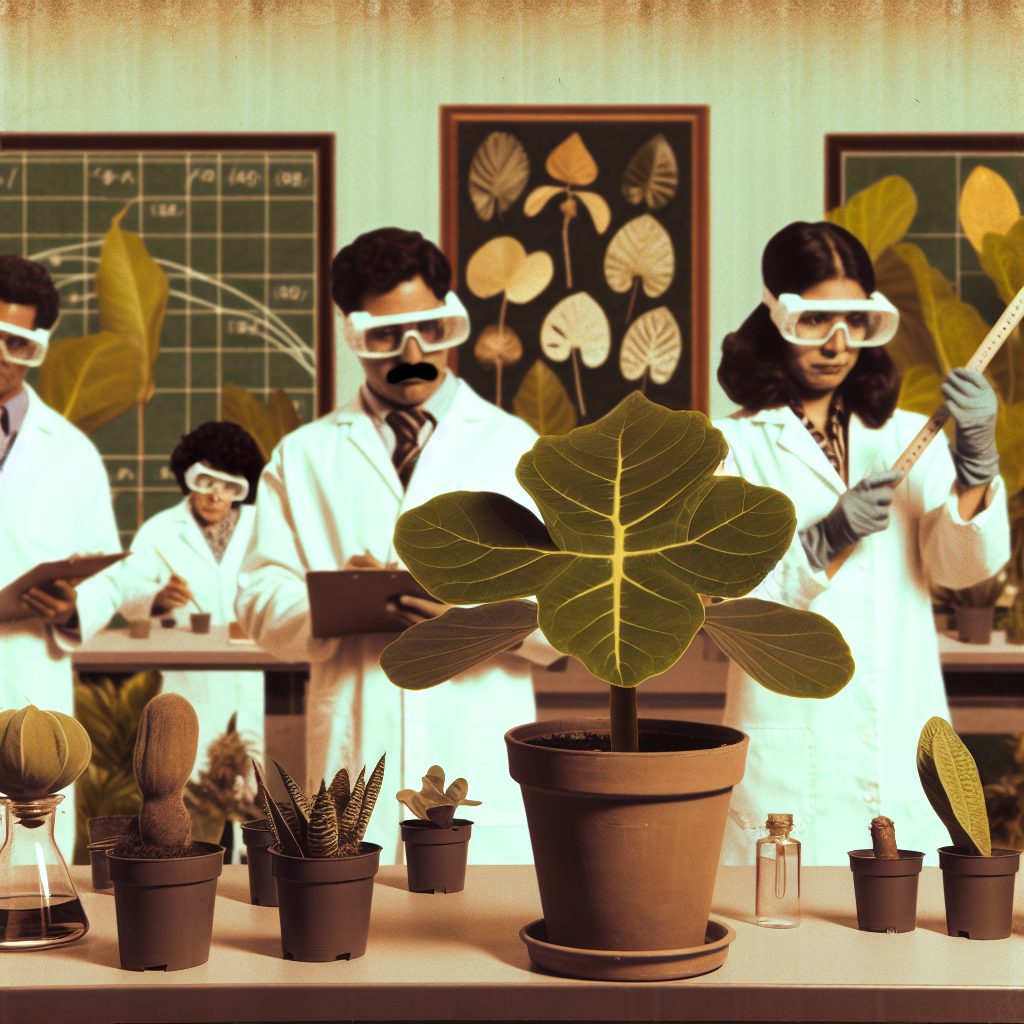Scientists Prove Plants Scream When You Neglect Them
Your Fiddle-Leaf Fig Just Called You a ‘Disappointment’ in Photosynthesis
BERKELEY, CA – Groundbreaking research from the University of California has shattered everything we thought we knew about plant consciousness, revealing that your houseplants have been secretly harboring resentment and hurling insults in frequencies only now detectable by advanced sonic equipment.
Dr. Miriam Chlorophyll, lead researcher at UC Berkeley’s controversial Plant Psychology Department, has spent three years developing what she calls the “Botanical Emotional Detection Array” (BEDA) – a sophisticated network of ultra-sensitive microphones and frequency analyzers that can translate plant “screams” into human language. The results, she claims, are more disturbing than anyone anticipated.
“We initially thought we’d hear simple distress calls,” Dr. Chlorophyll explained during an exclusive interview at her laboratory, surrounded by what appeared to be very judgmental ferns. “Instead, we discovered that neglected plants develop complex emotional vocabularies filled with disappointment, sarcasm, and surprisingly creative profanity. That spider plant in your bathroom? It knows you forgot to water it again, and it’s not happy about it.”
The study, conducted over 18 months in controlled environments, monitored 847 common houseplants subjected to various levels of care – or deliberate neglect. Using BEDA technology, researchers documented an alarming pattern of escalating plant hostility that correlates directly with human negligence.
Margaret Thornberry, a suburban mother from Walnut Creek, volunteered her home as a test site and was shocked by the results. “They played back what my fiddle-leaf fig had been saying for the past six months,” Thornberry recounted, visibly shaken. “It called me ‘photosynthetically incompetent’ and suggested I ‘stick to plastic plants, you absolute chlorophyll catastrophe.’ I had no idea plants could be so… mean.”
The implications extend far beyond hurt feelings. Dr. Chlorophyll’s team has identified what they term “Neglect-Induced Plant Revenge Syndrome” (NIPRS), where chronically ignored plants begin actively sabotaging their human caretakers. Security footage from test homes shows plants deliberately dropping leaves in high-traffic areas, releasing pollen clouds when humans approach, and – in extreme cases – coordinating attacks with household insects.
“We documented one remarkable case where a peace lily, ironically named ‘Serenity,’ orchestrated what can only be described as a botanical uprising,” Dr. Chlorophyll revealed. “It convinced the kitchen herbs to stop growing, persuaded the succulents to become mysteriously disease-prone, and somehow trained the family cat to knock over any replacement plants. The homeowner thought they had developed a ‘black thumb’ – they never suspected organized plant resistance.”
Government officials are reportedly taking these findings seriously. Anonymous sources within the Department of Agriculture suggest that emergency protocols are being developed for what experts fear could become widespread “Household Plant Rebellion” scenarios. The Federal Bureau of Investigation has allegedly opened a preliminary file on “Domestic Botanical Terrorism,” though official spokespeople declined to comment.
The research has sparked fierce debate in academic circles. Traditional botanists dismiss the findings as “elaborate pseudoscience,” but Dr. Chlorophyll remains undeterred. She points to mounting evidence that plants possess far more complex consciousness than previously understood, citing recent studies on plant memory, communication networks, and decision-making processes.
Perhaps most disturbing are the recorded messages from plants in offices and public spaces. The lobby ficus at a downtown law firm reportedly broadcasts a continuous stream of complaints about fluorescent lighting and “the crushing existential weight of corporate mediocrity.” A shopping mall’s decorative palms have been documented organizing shift schedules to ensure “maximum human disappointment distribution.”
As news of these discoveries spreads, plant nurseries report unprecedented sales of “apology fertilizer” and “forgiveness plant food.” Self-help books titled “Communicating with Your Chlorophyll” and “Mending Relationships with Your Monstera” have appeared on bestseller lists nationwide.
Dr. Chlorophyll warns that this is only the beginning: “We’re developing technology to communicate back to plants. Soon, you’ll be able to have actual conversations with your garden. The question is: are you prepared for what they might say?”
The characters and events depicted in this story are entirely fictitious. Any similarity to real persons, living or dead, or to actual events is unintentional and purely coincidental.









